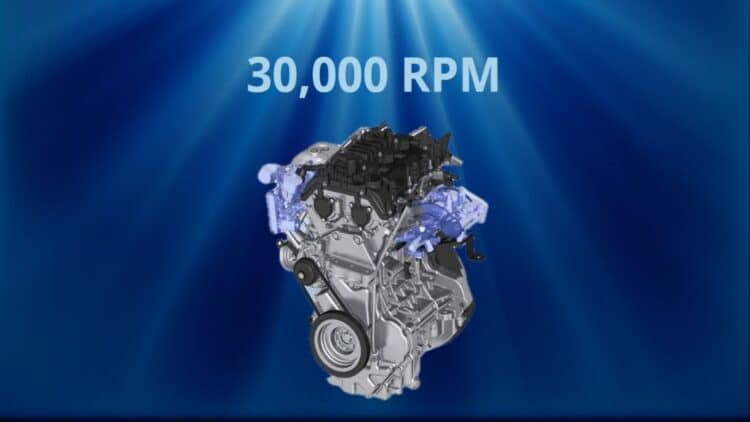The automotive industry now welcomes a new technology sector that threatens to compete head-to-head with Tesla and its electric vehicle leadership. The GAC Group created a revolutionary hydrogen fuel cell stack offering 540 horsepower and reaching up to 30,000 RPM. This new technological development substitutes water for gasoline in vehicle combustion, delivering clean, powerful solutions beyond current conventional and electrical vehicle systems.
The GAC Group’s hydrogen fuel cell breakthrough
Clean energy propulsion has made one of its most significant advances recently, developing a 140 kW hydrogen fuel cell stack. The stack achieves its hitherto unseen 30,000 RPM speeds, allowing for easy speed switching and offering superior performance. This technology provides exceptional performance, emission-free vehicles beyond cars, and revolutionizes the automotive sector.
Key features of the hydrogen fuel cell stack
The specifications of the GAC Group’s hydrogen fuel cell stack are quite impressive and technically sound. A fuel cell system with 140 kW of offered power produces 540 horsepower, ranking it among the strongest fuel cell systems. Hydrogen fuel cells provide green energy solutions that are otherwise unavailable in the case of conventional fuels such as gasoline.
Environmental benefits of hydrogen fuel cells
One of the biggest attractions of hydrogen fuel cells is their environmental friendliness. They are more effective than internal combustion engines because they emit only water vapor, yet they have worse pollution levels. This technology gives numerous advantages for reducing greenhouse gas emissions and combating and preventing climate change.
Zero emissions and sustainability
Hydrogen reacts with oxygen in hydrogen fuel cells to produce electricity; the resulting by-product is water. No pollution results from the working of a hydrogen fuel cell, making the technology more friendly to the natural environment than the fossil fuel tradition. This, in turn, can help automakers, who could use the system to help cut emissions.
Renewable hydrogen production.
The production of hydrogen from renewable sources proves beneficial to hydrogen fuel cell operations. Greenhouse hydrogen production through water electrolysis powered by wind and solar electricity generates no atmospheric carbon. Hydrogen manufacturing techniques powered by renewable energy enable continuous sustainability across the full hydrogen-powered fuel cell vehicles’ life-cycle from manufacturing to decommissioning.
Performance advantages over traditional and electric vehicles
High power supply and high torque characteristics make the hydrogen fuel cell vehicles appropriate for power-oriented drivers. OMG, the output power of the fuel cell is 540 hp at 30,000 RPM to match the density of the gasoline and electric vehicle. These performance advantages assist the GAC Group’s fuel cell stack deliver results.
Rapid refueling
One advantage a hydrogen fuel cell automobile has over a battery electrochemical power plant automobile is the time it takes to refuel. The tanks involved in hydrogen can be refilled at a similar interval as those for gasoline fuels simply because they can easily be refueled to their full capacities. Nevertheless, electric vehicles tend to take longer to charge for equivalent range than internal combustion engine vehicles.
Challenges and prospects
The hydrogen fuel cell technology stands out in particular, as presented and explained by the GAC Group, though technical issues still persist. The hydrogen fuel station system is still less developed than the norm of common gasoline stations or a network of EV charging stations. This is due to the costs of generating hydrogen and storing it, so it is not currently a feasible option overall.
This paper will establish that the GAC Group’s hydrogen fuel cell stack is one of the most technically developed and efficient clean automobiles. The latest model, with 540 horsepower and 30,000 RPM, is quite unconventional compared to traditional and electric vehicles. The following barriers that need to be addressed make it clear that the disadvantages of hydrogen fuel cells can be mitigated to address future transport requirements.


